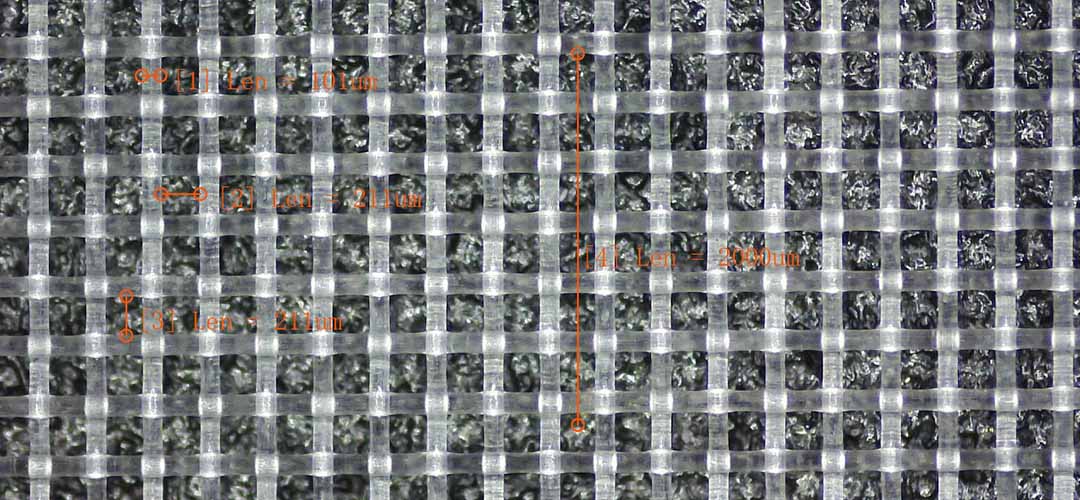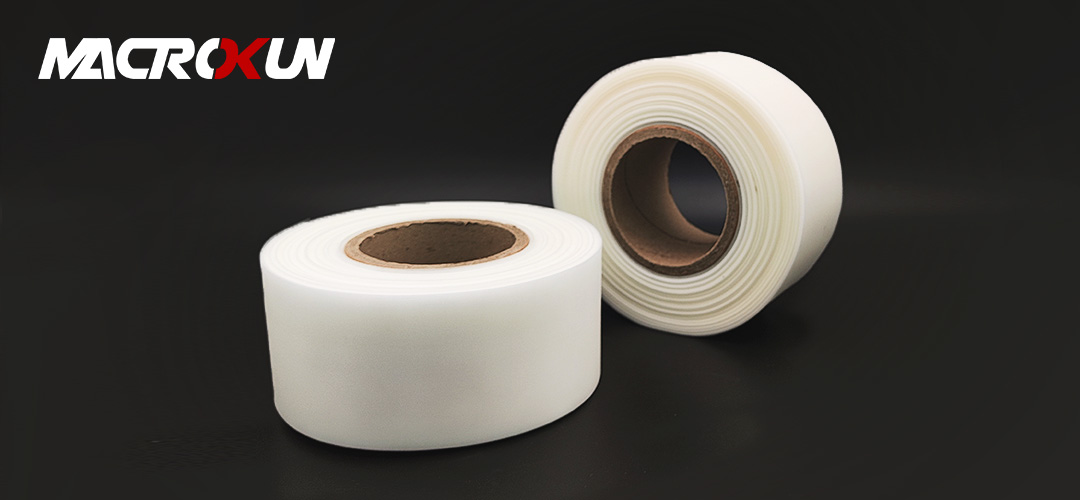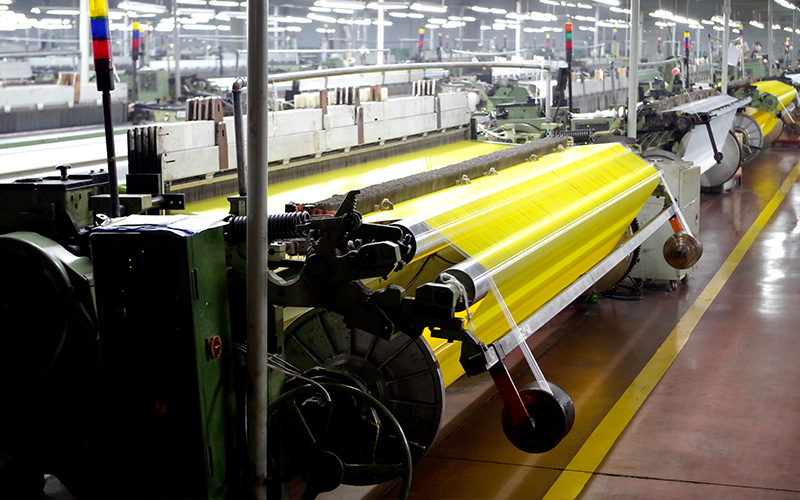Nylon mesh fabric has emerged as a versatile material in various filtration systems, owing to its unique properties and adaptability. Its lightweight yet durable nature makes it an ideal choice for applications ranging from industrial filtration to consumer products. The inherent strength of nylon, combined with its resistance to abrasion and chemicals, allows it to perform effectively in demanding environments. As industries continue to seek efficient and reliable filtration solutions, the use of nylon mesh fabric has gained significant traction.
In industrial settings, nylon mesh is frequently employed in liquid filtration systems. Its fine mesh structure enables the effective separation of particulates from liquids, ensuring that the end product meets stringent quality standards. For instance, in the food and beverage industry, nylon mesh filters are utilized to remove impurities from liquids, such as juices and oils, thereby enhancing product purity and safety. The ability of nylon to withstand high temperatures and various chemical agents further solidifies its position as a preferred material in these applications.
Moreover, nylon mesh fabric is also widely used in air filtration systems. Its lightweight design allows for easy integration into various air handling units, where it serves to capture dust, pollen, and other airborne particles. This capability is particularly crucial in environments that require stringent air quality control, such as hospitals and laboratories. The adaptability of nylon mesh fabric enables manufacturers to customize the mesh size and thickness according to specific filtration needs, thereby optimizing performance and efficiency.
In addition to industrial applications, nylon mesh fabric has found its way into consumer products, particularly in the realm of personal filtration devices. Water bottles equipped with nylon mesh filters allow users to enjoy clean drinking water by effectively removing contaminants. This application not only highlights the material’s versatility but also underscores the growing consumer demand for portable and efficient filtration solutions. As awareness of water quality issues increases, the role of nylon mesh in personal filtration systems is likely to expand further.
Furthermore, the adaptability of nylon mesh fabric extends to its use in environmental filtration applications. For example, in wastewater treatment facilities, nylon mesh is employed to filter out solids and debris from effluent streams. This process is essential for ensuring that treated water meets environmental regulations before being released back into natural water bodies. The durability of nylon mesh allows it to withstand the harsh conditions often present in wastewater treatment processes, making it a reliable choice for such critical applications.

As industries continue to innovate and evolve, the demand for effective filtration solutions will only grow. The adaptability of nylon mesh fabric positions it as a key player in this landscape, capable of meeting diverse filtration needs across various sectors. Its ability to be tailored for specific applications, combined with its robust performance characteristics, ensures that nylon mesh will remain a staple in filtration systems for years to come. In conclusion, the applications of nylon mesh fabric in filtration systems are vast and varied, reflecting its essential role in enhancing product quality, ensuring safety, and promoting environmental sustainability. As technology advances and new challenges arise, the potential for nylon mesh in filtration will undoubtedly expand, paving the way for innovative solutions that address the evolving needs of industries and consumers alike.
Nylon mesh fabric has emerged as a preferred material in the design and manufacturing of custom filters, owing to its unique properties and versatility. One of the primary benefits of using nylon mesh is its exceptional strength-to-weight ratio. This characteristic allows for the creation of filters that are not only lightweight but also durable, making them suitable for a wide range of applications, from industrial processes to consumer products. The inherent strength of nylon mesh ensures that filters can withstand significant pressure and stress, which is particularly important in environments where filtration systems are subjected to harsh conditions.
In addition to its strength, nylon mesh offers excellent chemical resistance. This property is crucial for filters that operate in environments where they may come into contact with various chemicals, solvents, or corrosive substances. The ability of nylon mesh to maintain its integrity and performance in such conditions makes it a reliable choice for industries such as pharmaceuticals, food and beverage, and water treatment. Furthermore, the fabric’s resistance to UV light and moisture contributes to its longevity, reducing the need for frequent replacements and thereby lowering overall operational costs.
Another significant advantage of nylon mesh is its versatility in terms of mesh size and configuration. Custom filter designs can be tailored to meet specific filtration requirements, whether that involves capturing large particles or filtering out fine contaminants. The ability to adjust the mesh size allows engineers and designers to create filters that are optimized for particular applications, enhancing efficiency and effectiveness. This adaptability is particularly beneficial in industries where precise filtration is critical, such as in the production of high-purity chemicals or in the filtration of air and liquids in sensitive environments.
Moreover, nylon mesh is easy to fabricate and can be sewn, welded, or bonded into various shapes and sizes. This ease of processing enables manufacturers to produce custom filters that fit seamlessly into existing systems or meet unique design specifications. The flexibility in design not only enhances functionality but also allows for aesthetic considerations, as filters can be integrated into products without compromising their visual appeal. This aspect is particularly relevant in consumer-facing applications, where the appearance of a product can significantly influence purchasing decisions.
The lightweight nature of nylon mesh also contributes to energy efficiency in filter systems. Lighter filters require less energy to operate, which can lead to reduced operational costs and a smaller carbon footprint. This aspect aligns with the growing emphasis on sustainability in manufacturing and product design, making nylon mesh an attractive option for companies looking to enhance their environmental credentials.
In conclusion, the benefits of using nylon mesh for custom filter designs are manifold. Its strength, chemical resistance, versatility in mesh size, ease of fabrication, and lightweight nature make it an ideal choice for a wide array of applications. As industries continue to seek innovative solutions to meet their filtration needs, the adaptability of nylon mesh fabric positions it as a leading material in the development of efficient, durable, and effective filter systems. By leveraging these advantages, businesses can not only improve their operational efficiency but also enhance product quality and sustainability, ultimately leading to greater customer satisfaction and competitive advantage in the marketplace.
When considering the optimal materials for filter design, nylon mesh fabric stands out due to its unique properties and versatility. However, to fully appreciate its advantages, it is essential to compare it with other commonly used filter materials, such as polyester, polypropylene, and metal meshes. Each of these materials has its own set of characteristics that can influence performance, durability, and application suitability.
Nylon mesh fabric is renowned for its excellent tensile strength and flexibility, which allows it to maintain structural integrity under varying conditions. In contrast, polyester, while also strong, tends to be less flexible and can become brittle over time, especially when exposed to UV light. This brittleness can lead to premature failure in applications where the filter is subjected to constant movement or stress. Furthermore, nylon’s resistance to abrasion makes it particularly advantageous in environments where particulate matter is prevalent, as it can withstand wear and tear better than polyester.

On the other hand, polypropylene is another popular choice in filter design, primarily due to its chemical resistance and lower cost. While polypropylene filters are effective in many applications, they often lack the same level of strength and flexibility as nylon mesh. This can limit their use in high-stress environments or where fine filtration is required. Additionally, polypropylene is less effective at high temperatures, which can be a significant drawback in industrial applications where heat is a factor. In contrast, nylon mesh can endure higher temperatures without compromising its structural integrity, making it a more reliable choice for demanding conditions.

When comparing nylon mesh to metal meshes, the differences become even more pronounced. Metal filters, while offering exceptional durability and heat resistance, can be heavy and less adaptable to various shapes and sizes. This rigidity can limit their application in scenarios where flexibility is essential. Moreover, metal filters often require more complex manufacturing processes, which can increase production costs and lead times. In contrast, nylon mesh can be easily cut, sewn, or molded into various configurations, allowing for greater design freedom and faster production cycles.
Another critical aspect to consider is the filtration efficiency of these materials. Nylon mesh fabric is available in a range of mesh sizes, enabling it to filter out particles of varying dimensions effectively. This adaptability allows designers to tailor the filtration process to specific needs, whether for air, liquid, or other applications. While metal filters can also achieve high filtration efficiencies, they may not offer the same versatility in terms of mesh size and configuration. This can be a significant limitation in industries where precise filtration is crucial.
In addition to performance characteristics, the environmental impact of these materials is becoming increasingly important in filter design. Nylon mesh is often more sustainable than its counterparts, as it can be produced with recycled materials and is recyclable itself. This aspect aligns with the growing demand for eco-friendly solutions in various industries, making nylon mesh an attractive option for companies looking to enhance their sustainability efforts.
In conclusion, while nylon mesh fabric presents numerous advantages in filter design, it is essential to consider the specific requirements of each application. By comparing nylon mesh with other materials such as polyester, polypropylene, and metal meshes, it becomes clear that nylon’s unique combination of strength, flexibility, and adaptability makes it a compelling choice for a wide range of filtration needs. As industries continue to evolve, the demand for innovative and efficient filter solutions will only grow, further solidifying nylon mesh‘s position as a leading material in filter design.
Pre: Using Nylon Mesh for Filtration Media in Specialized Applications
Next: How Mesh Nylon Fabric Filters Enhance Operational Efficiency

MACROKUN has established long-term and stable cooperative relations with many transportation companies such as China Post, DHL, FEDEX, USPS, UPS, etc. Of course, MACROKUN can also provide air and sea transportation. The powerful logistics system enables all MACROKUN'S Printing Mesh, Filter Mesh and Filter Bags and so on to be easily and efficiently transported to any place. For quotes and inquiries, please email our sales team.





